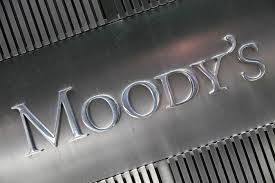Moody’s: The euro’s decline will have a ripple effect on SME ABS, with greater gains than thought
Monica Curti, VP-Senior Analyst at Moody’s - Jueves, 23 de Abril Small and medium enterprises (SMEs) in the euro area are poised to reap greater potential gains from the falling currency than previously thought, says Moody’s Investors Service in a sector comment published today. The sectors that benefit the most can weigh up to about 10% of European SME asset-backed securities (ABS) portfolios.
Small and medium enterprises (SMEs) in the euro area are poised to reap greater potential gains from the falling currency than previously thought, says Moody’s Investors Service in a sector comment published today. The sectors that benefit the most can weigh up to about 10% of European SME asset-backed securities (ABS) portfolios.
Moody’s report, titled “The Euro's Fall Will Give SMEs a Competitive Advantage Through a Ripple Effect,” is available on www.moodys.com.
“The overall effect of the euro's depreciation is limited on the euro area economy in general, and subsequently on SMEs in particular because a small number of SMEs directly stand to benefit from the cheaper euro. At the same time, our analysis shows that the positive effects of the weaker currency for SMEs are larger than may first appear,” observes Monica Curti, a Moody’s Vice President – Senior Analyst and author of the report.
“The competitive advantages for SMEs are compounded when we consider the indirect benefits of a weaker euro, particularly for sectors that are partially related to tourism. In our view, these gains will filter through to SME ABS portfolios,” she notes.
When the rating agency accounts for the exposure to segments that are partially related to tourism, the potential impact on European SME ABS performance is sizeable. For all of the European ABS SME transactions that Moody’s analysed, the number of sectors that benefit from the falling euro outweigh the penalized sectors. Moody’s analysis reflects a sample of roughly 350,000 loans to European SMEs for a total of €34 billion. The focus is on Italy, Spain and Belgium, as securitisations in these countries together account for nearly 80% of Moody’s rated European ABS SME market by volume.
Moody’s report says auto manufacturing, chemical production and tourism are the biggest beneficiaries of the euro's slide. This is especially the case for Spanish SME ABS transactions, where relatively high portion of SMEs provide accommodation and food services. However, other SME ABS portfolios' concentrations are lower than 4% for sectors that are positively exposed to the weaker euro.
The largest non-euro area exporting destinations remain within Europe, particularly the UK. For Italy, Switzerland is a key market, as a neighbouring country. SMEs will be competing with each other for market share outside the euro area. They will also have an advantage over non-euro area SMEs operating in their sectors.
The weaker euro has indirect positive effects for SMEs that non-euro area export figures alone do not reflect. Exports outside the bloc will become more competitive and SMEs are well-positioned to provide substitutes for costlier imported products within the euro area. German and Italian SMEs will benefit the most, as about 60% of their overall exports are to countries outside the euro area. Higher exports outside the euro area have a domino effect on intra-euro-area suppliers. While hard to quantify, these advantages augment the positive effect of the cheaper euro for European SMEs.
[Volver]
- “No tengo la habilidad de hace 30 o 40 años para disparar certero a un valor”
- Banco Sabadell rechaza la oferta de fusión de BBVA
- La asignación de los inversores extranjeros a las acciones estadounidenses es actualmente tan extrema como lo era en el pico mismo de la burbuja tecnológica
- “Por cada dólar invertido en combustibles fósiles, se están invirtiendo actualmente $1,7 en energías limpias”
- Las tasas de morosidad de las tarjetas de crédito en Estados Unidos se encuentran ahora en su nivel más alto registrado, según la Reserva Federal de Filadelfia
- La tasa de ahorro cae al 3,2% desde el 3,6% y desde el 5,2% de hace un año. Mientras tanto, los saldos de las tarjetas de crédito están en su punto más alto
- La asignación de los inversores extranjeros a las acciones estadounidenses es actualmente tan extrema como lo era en el pico mismo de la burbuja tecnológica
- Las tasas de morosidad de las tarjetas de crédito en Estados Unidos se encuentran ahora en su nivel más alto registrado, según la Reserva Federal de Filadelfia
- “No tengo la habilidad de hace 30 o 40 años para disparar certero a un valor”
- Las asignaciones de efectivo de los gestores de fondos y los mínimos de varias décadas, lo que normalmente no es una buena señal para la rentabilidad de los activos en el futuro
- Los fondos de acciones de China registraron su mayor entrada en 8 semanas, lo que indica una sensación predominante de optimismo entre los inversores con respecto a las acciones chinas
- La tasa de ahorro cae al 3,2% desde el 3,6% y desde el 5,2% de hace un año. Mientras tanto, los saldos de las tarjetas de crédito están en su punto más alto








